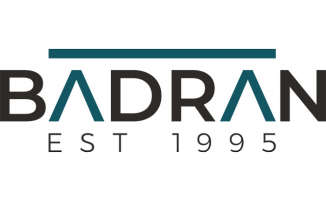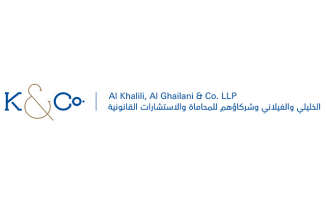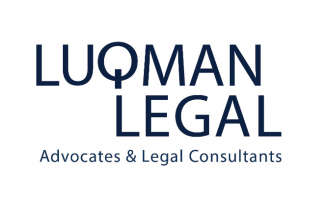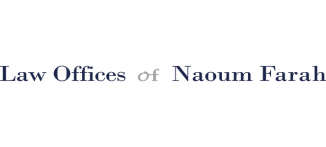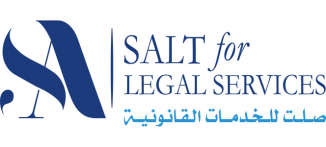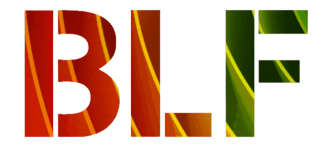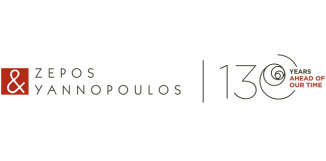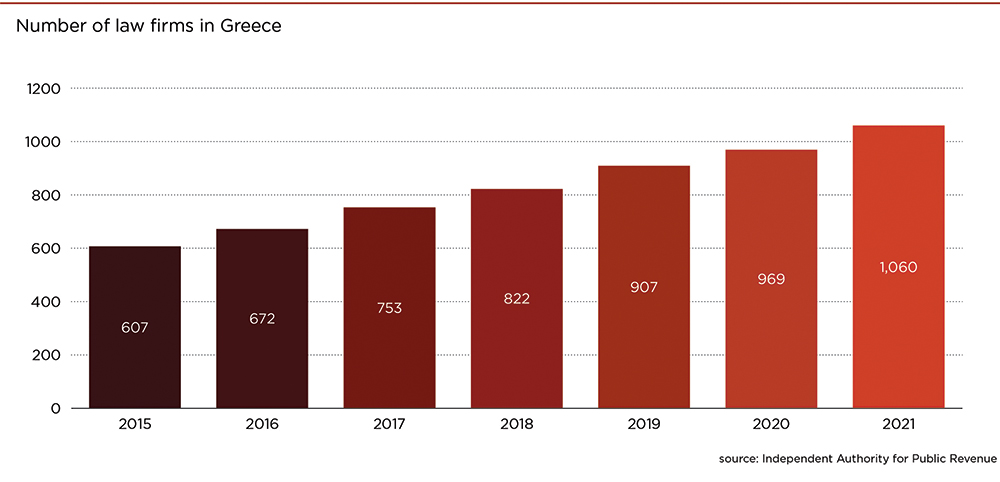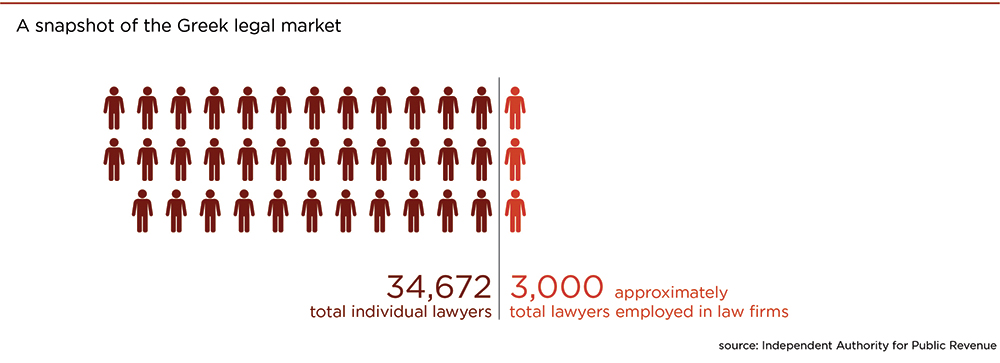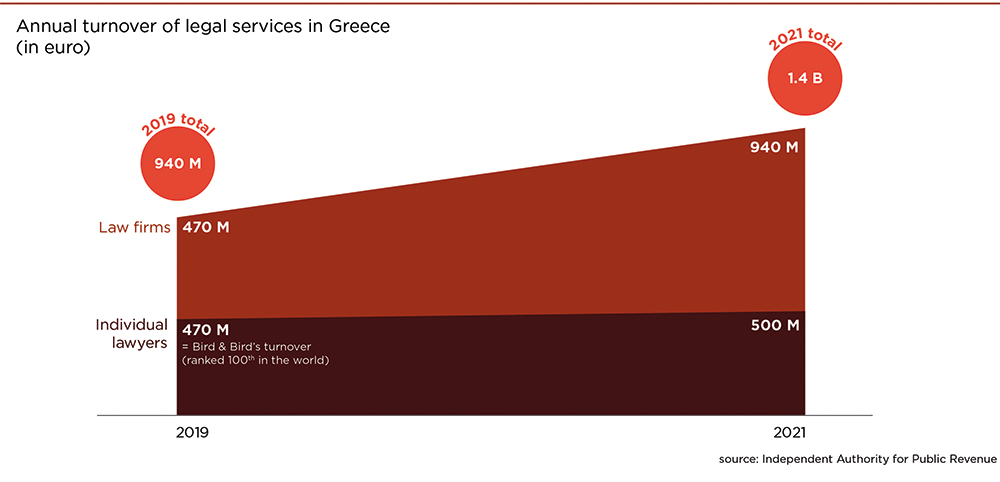Naoum Farah of LAW OFFICES of NAOUM FARAH gives an overview of the Lebanese legal market
Lebanon is renowned for its rich history, diverse culture, confessional political system and strategic location in the Middle East, North Africa and Turkey (MENAT) region. However, the country is currently grappling with many challenges. A devastating port explosion on 4 August 2020, political unrest, the Covid-19 pandemic, a banking crisis, and an ongoing economic downturn are just a few of the difficulties Lebanon has been facing recently.
Political unrest and regional turmoil
Lebanon’s political environment has been marked by internal divisions, power struggles, and the influence of regional forces. Balancing regional dynamics while addressing domestic challenges remains a complex task for Lebanese leaders. The prolonged presidential void in Lebanon, which has persisted since October 2022, and the government resignation following the parliamentary elections on May 2022, have added another layer of complexity to the country’s political landscape.
Lebanon has been significantly impacted by the Syrian refugee crisis. Since the conflict in Syria began in 2011, Lebanon has been hosting more than 1.5 million Syrian refugees (as per the official website of the European Union). Despite its small size and limited resources, Lebanon has one of the highest per capita refugee populations in the world. This influx of refugees has put considerable strain on the country’s resources, infrastructure, economy, and social fabric.
Lebanon’s banking sector, once considered the backbone of its economy, has been embroiled in a severe crisis. Years of economic mismanagement, coupled with corruption and financial irregularities, have led to a confidence crisis in the banking sector. This has resulted in informal capital controls, currency devaluation, and limited access to savings for the Lebanese population.
Lebanese retail businesses have reached a new record low as indicated by the latest update of the index measuring the quarterly evolution of their sales. The index1, which excludes the impact of inflation, has dropped below 1 for the first time (0.87 points) while the nominal value of the index, taken into consideration the inflation, has shown marginal growth. This implies that retailers’ sales have increased in nominal terms due to price increases but have decreased in real terms.
Lebanon’s economic crisis, rooted in years of mismanagement and structural flaws, has deepened in recent years. The country faces soaring inflation, rising unemployment rates, and a depletion of foreign currency reserves. The decline in purchasing power and the erosion of the middle class have further exacerbated social inequality and led to widespread protests demanding economic reforms.
Lebanon finds itself at a critical juncture, navigating a complex web of challenges that have shaken its foundations. The interplay of the port explosion, political unrest, the Covid-19 pandemic, banking crisis, and economic downturn has created a perfect storm, testing the resilience of its people and institutions.
Despite the challenges that have engulfed the nation, Lebanese people are trying to rebuild what has been broken. Lebanon has a highly educated work force, a competitive free market regime and a longstanding ‘laissez-faire’ commercial tradition.
‘Just as the Lebanese people have refused to be defeated, our firm has embraced a similar mindset. Rebuilding is not a simple task, but we are committed to standing by our clients and providing them with the legal support they need.’
Just as the Lebanese people have refused to be defeated, our firm has embraced a similar resilient mindset. We believe that rebuilding is not a simple task, but we are committed to standing by our clients and providing them with the legal support they need during this crucial time.
At our law firm, we understand the importance of staying ahead in an ever-evolving legal landscape. We continually seek out innovative strategies to address the complex challenges faced by our clients. Our team of legal professionals actively engages in ongoing research, monitoring emerging legal trends, and exploring groundbreaking approaches to provide effective solutions.
Summary of the situation in Lebanon at various fields
The legal system in Lebanon is based on a civil law or codified law system, which is distinct from the common law system and has three degrees of jurisdictions (First instance, Appeal and Court of Cassation).
In Lebanon, foreign court rulings are enforced following an exequatur’s procedure. Even in cases where a foreign judgment is recognised by the state, exequatur procedures are necessary to give the judgment an executive force in Lebanon.
Lebanon is an arbitration-friendly jurisdiction. It is a member of the New York Convention on the Recognition and Enforcement of Foreign Arbitral Awards. The enforcement of international arbitral awards is granted by the president of the first instance competent court.
Since the financial meltdown in the fall of 2019, Lebanon faces judicial paralysis due to judges and courts staff’s intermittent strikes calling for a radical solution to their salary increase and to the lack of electricity and water and non-functioning elevators in Justice palaces and the absence of basic stationery…!
Overview of different company structures in the business world
The Lebanese law allows the establishment of limited liability company (LLC), joint-stock companies (JSC or SAL), holding companies and offshore companies.
The LLC allows the incorporation of a company by a single person.
JSCs can be used in various sectors such as banking and insurance exclusively operating as JSCs. Foreign participation in JSCs is subject to specific requirements, including the composition of the board of directors. The roles of the general director and the chairperson of the board of directors are separate. Board members can be shareholders or non-shareholders. Electronic means, such as audio-visual technology, can be used for board meetings.
Holding companies and offshore companies are joint-stock structures regulated by specific legislative decrees. The ‘New Offshore Law’ amended the regulations for offshore companies, allowing for the incorporation of a company with just one shareholder and allowing all board members to be foreigners. Foreign non-resident chairpersons/general managers are exempt from work and residency permit requirements.
Moreover, Lebanon is ranked 75th in the world for having a favourable ecosystem for startups in the Global Startup Ecosystem Index by StartupBlink research centre’s, 2023 edition.
Foreign Investments in Lebanon
Foreign investments in Lebanon are regulated by Law No. 360/2001 on Investment. The Investment Development Authority of Lebanon (IDAL) is responsible for promoting Lebanon as an attractive investment destination and facilitating investments in the country. The law divides the country into three investment zones (A, B, and C), each with different incentives and tax exemptions based on criteria such as investment size, sector of operation, job creation, and geographical location. Eight sectors, including industry, media, technology, telecommunications, tourism, agriculture, agro-industry and informatics are covered by the law.
Foreign investors generally receive national treatment, meaning they are treated similarly to local investors. However, certain sectors may have restrictions or limitations on foreign ownership or participation. Lebanese nationals have exclusive rights in the manufacture and trade of weapons and the ownership of political newspapers and broadcast media. State-owned enterprises (SOEs) operate the landline phone networks and energy transmission, which are restricted to national and foreign investments. Companies providing public utility services are required by law to have one-third of their capital shares held by Lebanese individuals.
Bilateral Investment Treaties
Lebanon has signed so far 54 bilateral investment treaties (BITs) for the promotion and protection of investments with 50 countries.
These treaties are designed to encourage and safeguard foreign investments by providing legal protections and guarantees to investors from the signatory countries. BITs grant investors from a contracting state certain guarantees, including fair and equitable treatment, protection from expropriation, and the free transfer of funds. In addition, they provide investors recourse to arbitration, often under the auspices of ICSID, to resolve disputes with the host state.
Furthermore, foreign investors must comply with labour and employment laws in Lebanon. This includes obtaining work permits for foreign employees, adhering to minimum wage and working hour regulations, and fulfilling obligations related to social security and labour rights.
The energy sector in Lebanon:
The energy sector in Lebanon is currently reliant on the importation of petroleum products as the country lacks domestic oil and gas production. However, the sector is seen as promising, with potential for Lebanon to become an energy exporter. The Arab Gas Pipeline presents an opportunity for Lebanon to supply gas to Syria, Jordan, and Egypt, and potentially export to European markets through Turkey.
The legal framework for petroleum exploration and production in Lebanon is governed by several laws, including the Offshore Petroleum Resource Law, the Petroleum Tax Law, and the Transparency Law. Decrees, such as those establishing the Lebanese Petroleum Administration and regulating petroleum activities, also apply.
Under the Offshore Petroleum Resource Law, earnings from oil and gas exploration are required to go into a sovereign wealth fund, which is yet to be established. Disputes in the sector may be resolved through arbitration, following the Rules of Arbitration of the International Chamber of Commerce (ICC), with Lebanese law being applied. The law also outlines a procedure for resolving technical disputes through a sole expert, who must be mutually agreed upon by the parties.
The recent demarcation of Lebanon’s maritime borders with Israel on 27 October 2022, has reassured investors and created a more stable operating environment. A consortium consisting of Total, Eni, and Novatek (later replaced by QatarEnergy) has been awarded a licence for drilling operations in blocks four and nine of Lebanon’s waters. The exploration efforts in Lebanon’s offshore areas, particularly regarding gas, hold potential for addressing electricity outages and government budget deficits in the country and implications for Lebanon’s energy sector.
Environmental protection
Lebanon has been grappling with a waste management crisis since the closure of the Naameh landfill in 2015, with temporary measures implemented instead of addressing the root causes. The Syrian conflict has also had a detrimental impact on Lebanon’s air quality, leading to increased pollution.
Finding a long-term solution to the waste management crisis has been challenging due to political disagreements, funding difficulties, and the lack of a waste management authority. Sustainable waste management practices, including waste reduction, recycling, and modern landfill facilities, are crucial to addressing this crisis. On a positive note, there has been a growing demand for solar installations in Lebanon, driven by the need for reliable and affordable power supply. This shift to solar energy not only enhances energy security but also reduces greenhouse gas emissions, contributing to environmental protection.
Real estate
The Lebanese constitution guarantees the protection of private property and ownership. Individuals have the right to own, use, and dispose of property as they see fit, within the boundaries of the law. Foreigners are allowed to acquire up to 3,000sq m2 of real estate without a permit, and acquisitions larger than this require Cabinet’s approval. The Real Estate law stipulates that the cumulative real estate acquisition by foreigners cannot exceed 3% of the total land in any district. Additionally, in the Beirut region, the cumulative real estate acquisition by foreigners is limited to 10% of the total land area. Furthermore, Lebanese law prohibits individuals without internationally recognised nationality (Palestinian refugees) from purchasing property in Lebanon.
Banking sector
Lebanon’s banking industry has historically played a key role in the nation’s economy. Lebanese banks have been essential in attracting deposits thanks, inter alia, to the provisions related to bank secrecy and the absence of any legal restriction on a foreigner or a non-resident to open a bank account in local or foreign currency.
Commercial banks and investment banks operate in Lebanon. They cover the whole territory, and there are about 60 banks (available online at www.bdl.gov.lb) with branches covering the entire country.
‘Lebanon is ranked 75th in the world for having a favourable ecosystem for startups in the Global Startup Ecosystem Index by StartupBlink research centre’s, 2023 edition.’
In recent years, namely starting from 2016, the Lebanese financial crisis began to show its features when the Central Bank (BDL) implemented what it called ‘financial engineering’ in exchange for very high interest rates. In September 2019, the first signs of a currency shortage appeared. In October 2019, demonstrations took place for several weeks across the country to protest against corruption. Banks introduced restrictions on withdrawals and transfers of money abroad, restrictions on accounts in Lebanese pounds, created the ‘Lollar’2 currency – by virtue of a BDL Circular no. 151 – to oblige depositors to withdraw their US deposits in Lebanese pounds at a rate lower than that of the black market. On 7 March 2020, Lebanon announced that it would default on its nearly $31bn debt. Alongside, there has been a rapid deterioration of the Lebanese currency value (Lebanon had several exchange rates) as well as a significant increase in inflation.
Inflation rose by 81.4% between the fourth quarter of 2022 and the first quarter of 2023. Depositors, investors, and the public have lost confidence in the banking system and its ability to safeguard their funds.
Amid these challenges, remittance inflows from immigrants have emerged as a crucial lifeline, (between US$6bn and $7bn over the past decade).3 According to a report from the UNDP, remittance inflows from immigrants to Lebanon represent 37.8% of the GDP in 2022, placing Lebanon at top countries in the MENA region ‘having the highest remittances to GDP ratio’.4
In March 2023, an International Monetary Fund (IMF) mission visited Beirut, to assess the economic situation, and discuss policy priorities. Stuff Level Agreement was signed by the Lebanese government and IMF5 which is facing strong opposition. The mission emphasises the urgent need for comprehensive reforms in Lebanon to achieve stability and economic growth. The proposed package of reforms includes adopting a unified market exchange rate, adjusting taxes to inflation, and initiating public sector reforms. Additionally, a credible restructuring of the financial system, including capital control, acknowledging losses, reducing the number of banks, protecting small depositors, and modernising the legal and institutional framework, is essential.
It is crucial to rebuild trust in the financial industry as it plays a vital role in restoring stability and attracting investments to the country. By implementing the necessary governance and economic reforms, stabilising the currency rate, and recapitalising the financial system, Lebanon can attract foreign investments and pave the way for sustainable growth. These measures will not only address immediate challenges but also lay the foundation for long-term stability and prosperity.
Anti-corruption
Lebanon enacted an Anti-Money Laundering and Terrorism Law in 2015 and Illicit Enrichment Law in 2020. Nevertheless, corruption remains a significant challenge in Lebanon. It often arises within the scope of the tenders and the ministries that issue them. Despite having laws in place to address officials’ corruption and illicit wealth (the Illicit Wealth Law; Legislative Decree No. 38/1953), enforcement is often ineffective as the law does not extend to political parties but is limited to state employees and municipality members. Anti-corruption measures, including lifting bank secrecy for top government officials, is key to fighting corruption. However, it is not effectively implemented.
Lebanese criminal law provides penalties for officials’ corruption. The fight against corruption in Lebanon requires sustained efforts to ensure effective implementation of anti-corruption laws and the promotion of transparency and accountability.
Competition law
In March 2022, Lebanon’s Parliament enacted its first competition law aimed at addressing monopolies and encouraging foreign investment.
The law invalidates exclusive licences granted to domestic companies in specific sectors and requires the creation of a National Competition Authority (NCA) responsible for regulating competition.
The effective implementation of this law will determine its effectiveness in limiting monopolies and attracting foreign investment.
Focus on LAW OFFICES of NAOUM FARAH
The Law Offices of Naoum Farah, founded in 1975 by Mr Naoum Farah, is a well-established legal firm in Beirut, Lebanon. Known for its professionalism and excellent service quality, the firm is regarded as one of the leading multidisciplinary law firms in the country.
The firm specialises mainly in the following areas: commercial and corporate matters, litigation and dispute resolution, media, advertising, intellectual property, hospitality, mergers and acquisitions, commercial distribution, real estate, financial crimes and labour law. It represents the interests of both national and international clients and has extensive experience in terrestrial and satellite TV broadcasting, satellite law, new technologies, film and television production and distribution, media entertainment, and sports.
Several of its largest clients include prominent companies covering several areas of law. It regularly represents and succeeds in criminal complaints, civil and commercial disputes and personal injury. It recently restructured two local family groups following the passing away of their founding members, which included the implementation of a new corporate governance structure for all subsidiaries.
Notable cases handled by the firm include representing prominent individuals such as a Lebanese businessman and former members of the Parliament and former ministers. It is representing as well other individuals involved in wide-ranging legally significant cases, including:
- a well-known media broadcasting company’s ownership and then with one of the most powerful political parties in Lebanon;
- Mr Michael and Peter Taylor, Mr G. Zayek, the team involved in Mr Carlos Ghosn’s exit from Japan to Beirut in December 2019;
- 2020 Beirut Port’s blast investigations before the investigating judge;
- the assassination of former president of the republic Mr Bashir Gemayel’s trial before the Court of Justice; and
- public sector corruption and squandering of public funds prosecutions against ministers, directors-general of public institutions, and public officials.
Overall, the Law Offices of Naoum Farah has a strong reputation for its expertise, professionalism, and successful representation in a wide range of legal matters, both domestically and internationally.
The Founder and Head of arbitration:
Mr Naoum Farah
The senior lawyers:
Mrs Roula El Hajj
Mr Weygand Farhat
Mrs Nada Farhat
Mrs Mirna Hneiny
Ms Roula Tayar
Footnotes
1. Index developed by Beirut Traders Association and Fransabank (June 2023)
2. It is a Lebanese dollar, a contraction of Lebanese pounds and dollars, as opposed to ‘fresh dollars’ which retain the value of the American currency.
3. L’Orient-Le jour (09/06/2023) ‘Envoi de fonds vers le Liban: de plus en plus informels et de plus en plus conséquents’
4. www.undp.org/sites/g/files/zskgke326/files/2023-06/remittances_report_june_2023_0.pdf
5. The Capital Control Law remains a draft law.







